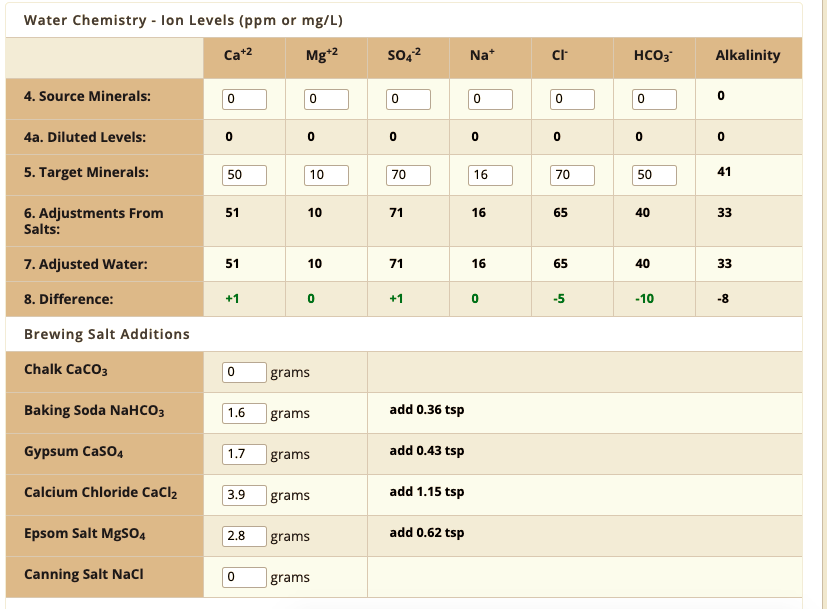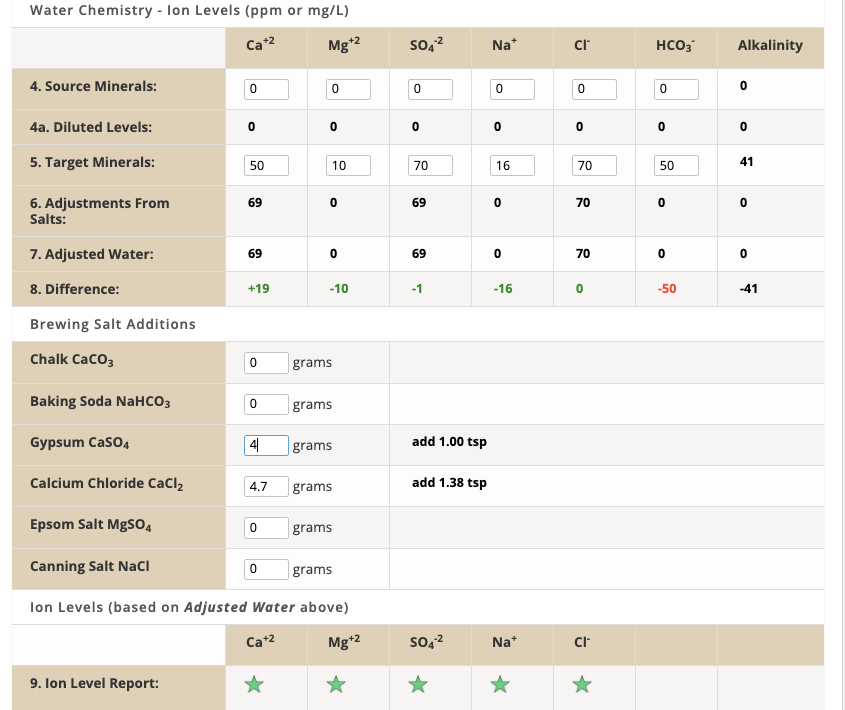luckybeagle
Making sales and brewing ales.
I brew on a 3 vessel eHERMS setup, but in the interest of time and simplicity I've been doing single infusion, no sparge batches using the entire volume of brewing water in the mash.
I use a 4 stage RO unit now and have been attempting to reconstitute my brewing water to a balanced profile. I use brewersfriend and set my source minerals to ZERO (as if the water is 100% pure).
Since I started on this track, my beers have tasted salty. Many of the other off flavors I had with using tap water before are now gone (yay) but the saltiness is perceptible in each beer. I've brewed a hefeweizen, a Kveik Golden Strong, and a dry irish stout, all with that underlying saltiness despite building the profile of the entire volume of the water used in the batch as follows:

Am I doing something wrong? I don't have a TDS meter, but assuming the levels are low and where they should be, what do you think could be causing this saltiness?
I use a 4 stage RO unit now and have been attempting to reconstitute my brewing water to a balanced profile. I use brewersfriend and set my source minerals to ZERO (as if the water is 100% pure).
Since I started on this track, my beers have tasted salty. Many of the other off flavors I had with using tap water before are now gone (yay) but the saltiness is perceptible in each beer. I've brewed a hefeweizen, a Kveik Golden Strong, and a dry irish stout, all with that underlying saltiness despite building the profile of the entire volume of the water used in the batch as follows:

Am I doing something wrong? I don't have a TDS meter, but assuming the levels are low and where they should be, what do you think could be causing this saltiness?

































![Craft A Brew - Safale BE-256 Yeast - Fermentis - Belgian Ale Dry Yeast - For Belgian & Strong Ales - Ingredients for Home Brewing - Beer Making Supplies - [3 Pack]](https://m.media-amazon.com/images/I/51bcKEwQmWL._SL500_.jpg)


























